We live in a world with a wealth of ideas on what we should and shouldn't eat. We all want to be healthy, but we're confused about what healthy is. Where should we start?
The #1 New York Times Bestseller Food Rules: An Eater's Manual by Michael Pollan succinctly summarises a food philosophy the average person can actually live by.
Despite talking of rules it embraces foodie culture and the pleasure of eating. Pollan teaches us to be more mindful of what and how we're eating. He created three simple statements, and from them derived thirty six food rules sure to charm, educate and make you laugh. "Eat food. Not too much. Mostly plants."
Everyone's been raving about it. "It doesn't get much easier than this. Each page has a simple rule... that promotes Pollan's back-to-the-basics-of-food (and-food-enjoyment) philosophy." - The Los Angeles Times.
He looked at diets around the world, from Native Americans to Innuits to Japanese, and came to the following conclusion:
"The irony is, the one diet we have invented for ourselves - the Western diet - is the one that makes us sick."
Despite not agreeing on what we should be eating, health experts all come to the same conclusion that what we're eating is literally killing us - causing cancers, heart disease, diabetes, obesity and more.
"The French paradox is that they have better heart health than we do despite being a cheese-eating, wine-swilling, fois-gras-gobbling people."
His simple anecdote, takes into account the few facts nutritionists universally seem to be able to agree on.
"Eat food. Not too much. Mostly plants. That, more or less, is the short answer to the supposedly incredibly complicated and confusing question of what we humans should eat in order to be maximally healthy."
There's no rocket science or fancy jargon involved.
"It’s an easy-to-use guide that draws from a variety of traditions, suggesting how different cultures through the ages have arrived at the same enduring wisdom about food. Whether at the supermarket or an all-you-can-eat buffet, this is the perfect guide for anyone who ever wondered, “What should I eat?”
Eat Food.
Eat what you're Grandmother would call food. Your Dutch Grandma thought kale was cool long before it became the international hit (for a reason!) Real food has few ingredients, and when you read them you understand what they are. Skip foods with long preservatives list. Look at that pottle of yoghurt, and read what's actually in it. Shop the perimeter of the supermarket, it's where the real foods are.
"Avoid food products containing ingredients that no ordinary human would keep in the pantry"
"It's not food if it's called by the same name in every language. (Think Big Mac.. or Pringles)
"Eat foods that will eventually rot"
Not too much.
Nutritionists agree, it isn't just what we're eating, it's how we're eating it. Stop eating when you are no longer hungry. Many cultures have this tradition - the French, the Japanese, some the Islamic cultures. If you eat more mindfully it actually helps you eat less. So eat with people, eat at the dinner table, don't eat in the car, on the run, or in front of the TV. That way you're better able to track what you're eating.
"Spend as much time enjoying the meal as it took to prepare it"
"Buy smaller plates and glasses"
"Breakfast like a king, lunch like a prince, dinner like pauper"
Mostly plants.
Those familiar with the China Study will know the health benefits of eating a diet that's mostly plants. This rule kinda overrides the two above. If it's mostly plants you know it's going to be real food. If it's mostly plants, it doesn't matter quite so much the quantity you're eating. If you're eating meat or dairy, make it the side dish.
"Treat meat as a flavoring or special occasion food"
“If it’s a plant, eat it. If it was made in a plant, don’t.”
"Eat sweet foods as you find them in nature"
For those wanting a more in depth look at the health merits of a plant based diet check out the acclaimed The China Study, based on 20 years of studies, across 65 countries, and 6500 humans.
But for those wanting a quick light read Food Rules: An Eater's Manual could be just what you're looking for. It touches on many key worldwide food hot topics: organic vs non-organic, the importance of eating locally, factory farming, and the question of where our food is actually comes from.
Pollan's Food Rules are the perfect way to embrace simplicity. Eat real food, get back to basics, and be entertained along the way.
The book ends with rule number 64, it may be our favourite. “Break the rules once in a while.”
